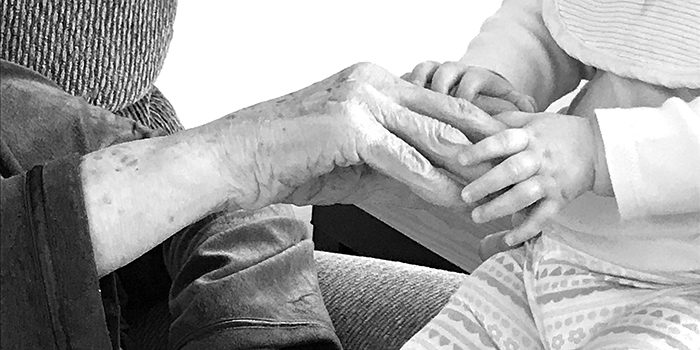Posted on April 9, 2020
COVID-19

The present virus crisis revives some past acronyms:
These acronyms are resurfacing in discussions about the possibility of rationing respirators. QALY (Quality Adjusted Life Years) in particular should cause us concern.
University of Pennsylvania professor, Ezekiel Emanuel, promotes the use of QALY. The New York Times and CNN cite him as an expert when it comes to rationing care in this pandemic. But his views go beyond the idea of triage, to the unfortunate reality in disasters of deciding who gets treated first, to determining who should not be treated at all. He sees some lives—people with disabilities and the elderly, for example—as having less value than others. In the October 2014 issue of The Atlantic Emanuel authored an article entitled, “Why I Hope to Die at 75.” He wrote:
“But here is a simple truth that many of us seem to resist: living too long is also a loss. It renders many of us, if not disabled, then faltering and declining, a state that may not be worse than death but is nonetheless deprived. It robs us of our creativity and ability to contribute to work, society, the world. It transforms how people experience us, relate to us, and, most important, remember us. We are no longer remembered as vibrant and engaged but as feeble, ineffectual, even pathetic.”
This kind of thinking spreads virally in our culture transmitted by those who promote assisted-suicide and euthanasia. Another reason for us to do what we can to stop this “pandemic” from infecting how we think and make decisions. Life and death decisions should not come from a premise that some lives have less value than others. We must start with the premise that every life has equal value.
Tony Coelno puts in this way in a March 18 article in the Daily News: “We want to avoid this choice, and do everything we can for every patient, because every person has equal value. This is the right response. Yet it is one that, in day-to-day health policy debates, we have come terribly close to abandoning.”
This virus crisis gives us opportunity to affirm and reaffirm the value of human life given to us by our God. I never tire of this acronym, CRC—Created, Redeemed, Called. Our value comes from what God has done and continues to do for us. No age bracket, disability, or pesky virus can ever change that!
Even though this virus has slowed efforts to legalize doctor assisted suicide and euthanasia, we need to be vigilant in speaking up and defending all life from fertilization to natural death, and in all stages, ages and conditions.
The Canadian government is debating Bill C-7, a bill to extend (MAiD – Medical Aid in Dying) euthanasia to people who are not terminally ill and to incompetent people who made a prior request. Due to the temporary shut-downs, Bill C-7 is on hold. The longer Parliament is shut down, the less sense it makes for the government to pass the bill knowing that they also plan to begin a five-year review of the euthanasia law in June 2020.
Several US states were debating bills to legalize assisted suicide; while Hawaii was debating a bill to expand its assisted suicide law. Now that the state legislatures have temporarily shut down, it is unlikely that these assisted suicide bills will pass this year. The bad news is that the Washington state bill to research expanding the assisted suicide law passed and the New Hampshire assisted suicide study bill passed.
The assisted suicide lobby has used the COVID-19 crisis to allow assisted suicide approval by telehealth.
Spain and Portugal are also debating bills to legalize euthanasia. With the legislative shut-downs in both countries and the tragic COVID-19 deaths, it is our hope that these bills will be stopped. In Portugal, groups opposing euthanasia collected enough signatures for a referendum on euthanasia.
We expect that the COVID-19 crisis will temporarily result in fewer euthanasia (MAiD) deaths in Canada. Several Canadian regions determined that MAiD was not an essential service, redeploying health professionals for other essential tasks. The Netherlands euthanasia clinic temporarily shut down. Sadly, the Victoria, BC and Toronto, ON regions decided that MAiD is an essential “health” service.
“For God so loved the world, that he gave his only Son, that whoever believes in him should not perish but have eternal life. For God did not send his Son into the world to condemn the world, but in order that the world might be saved through him. John 3:16-17
The word “world” is used three times in these two verses. That word refers to everybody in the world — all lives. God sent Jesus not to save some lives, or lives deemed by society to be of “better quality,” but to save each and every life. Because all lives matter.
Rev. Dr. Jim Lamb – Life Advocate for Lutheran Family Service
More posts about COVID-19
